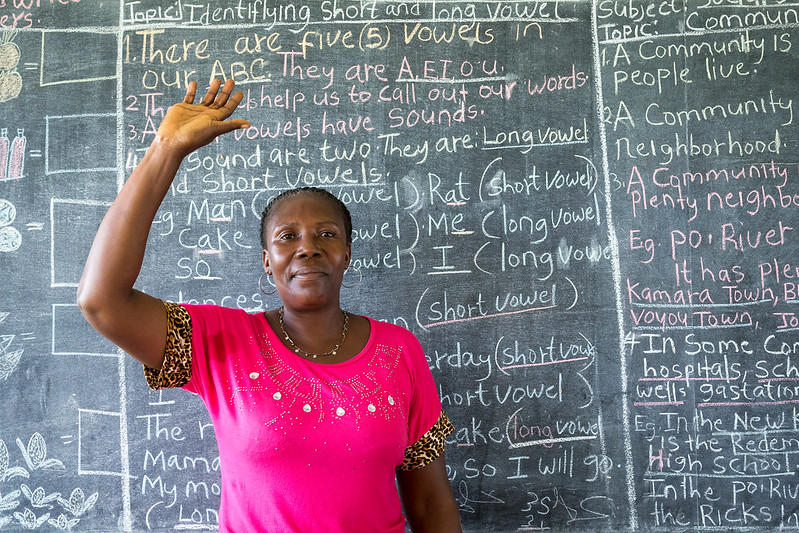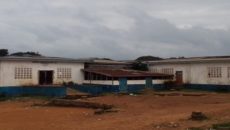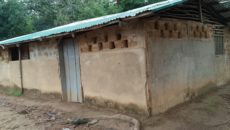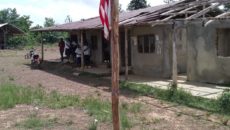MONROVIA, Montserrado – A major education sector stakeholder conference has been announced in Monrovia by the Ministry of Education as part of an annual system-wide review of the sector.
Called the Joint Education Sector Review, the forum will bring together major actors in education, including government, relevant United Nations agencies, local and international NGOs, and private funding partners, to review developments in the sector over the last year.
This year’s event is scheduled to convene in Ganta, Nimba from Nov. 18 – 22, at the Peace Empire Hotel. It is being held under the theme, “Restoring the Education Sector for Quality Outcomes Through Collective Efforts and Innovation.â€
Julius Sarwolo Nelson, Jr., the recently appointed president of the University of Liberia, will deliver the keynote address at the forum’s opening.
In a press statement issued on Wednesday, Nov. 13, the Ministry disclosed plans for the event, which it hopes will “review the accomplishments or progress made by the Ministry of Education and to find amicable ways to implement pending or proposed projects designed that will professionalize and standardize the education system.â€
Renewed attention has been paid to Liberia’s education sector in the wake of some depressing results. In 2013, former President Ellen Johnson Sirleaf described the educational system as a “total mess,†following mass failures by some 25,000 high school students across the country who took the University of Liberia’s admissions exams.
The former president’s statement sparked controversies locally, but it also did much to refocus domestic and international attention on badly needed support.
Since 2013, new initiatives and fresh funding have gone into the sector, both from government and international organizations and private donors. The Liberian government is expected to spend at least 15 percent of the national budget on education in the current fiscal year, according to an analysis of the 2019/2020 budget.
This figure represents a sizable increase over 2018/2019 spending. But results of the government’s efforts, however, remain mixed as personnel cost accounts for a substantial fraction of total spending, compared to direct programmatic spending.
At least one direct consequence of criticisms of the sector was the development in 2017 of a national program of “Getting to Best Education Sector Plan for 2017-2021,†aimed at addressing systemic failures in the sector.
As part of the government’s ‘Getting to Best’ sectorial plan, the Ministry of Education, under former education minister, George Werner, commenced the rollout of a controversial privatized public school administration program, whose impact continues to be positively assessed.
Since 2013, there has also been a notable increase in international support for education, especially from the World Bank. According to the Global Partnership for Education, some US$52.6 million dollars have been programmed since 2016 for the sector under the ‘Getting to Best’ national plan.
At the upcoming Education Sector Review conference in Ganta, past developments and sectorial plans will be assessed and modified, and new ones possibly introduced.
According to the ministry’s press release, major stakeholders will, over the course of the four-day conference, “provide recommendations and solidify and strengthen the county education system.â€
“The overview of Liberia’s education sector plan for 2018/2019 will also be analyzed during the session,†the release added.
Further deliberations will focus on “dissect[ing] and strategiz[ing] progress made in the operation plan 2018/2019, identify challenges or constraints and make sound recommendations to ensure the smooth implementation of the operational plan.â€
Some 10 thematic areas have already been identified for deliberations at the conference, including financing education, revised curriculum, science technology engineering and mathematics education, teacher education, monitoring and evaluation, early childhood education, basic and secondary education, vocational, technical and inclusive education.
Given the depth of Liberia’s educational crisis, and new evidence from the results of the West African standardized high school exams, known as WASSCE, there are indications of lingering challenges to improving educational quality. One wonders, therefore, the extent of transformation that can be achieved within the remaining lifespan of the ‘Getting to Best’ program, as Liberia continues to lag significantly behind its regional neighbors in education quality.
In a related development, Education Minister Ansu D. Sonii is currently heading a government delegation to the 40th session of the UNESCO General Conference ongoing in the French capital, Paris.
Featured photo by GPE/Kelley Lynch



